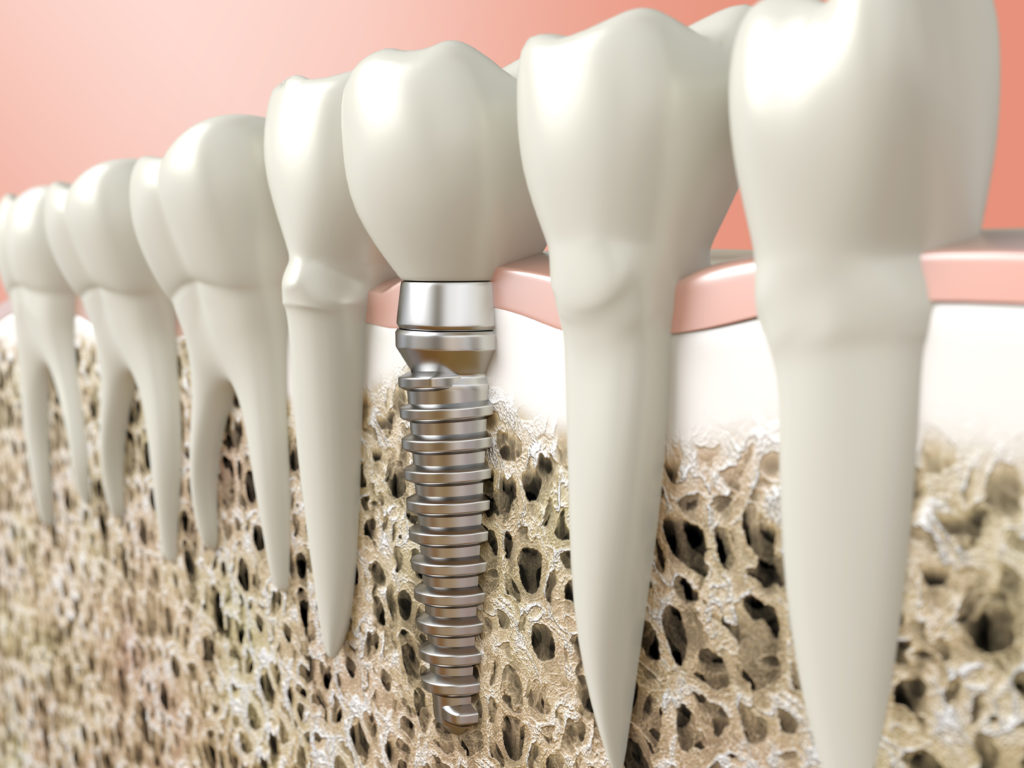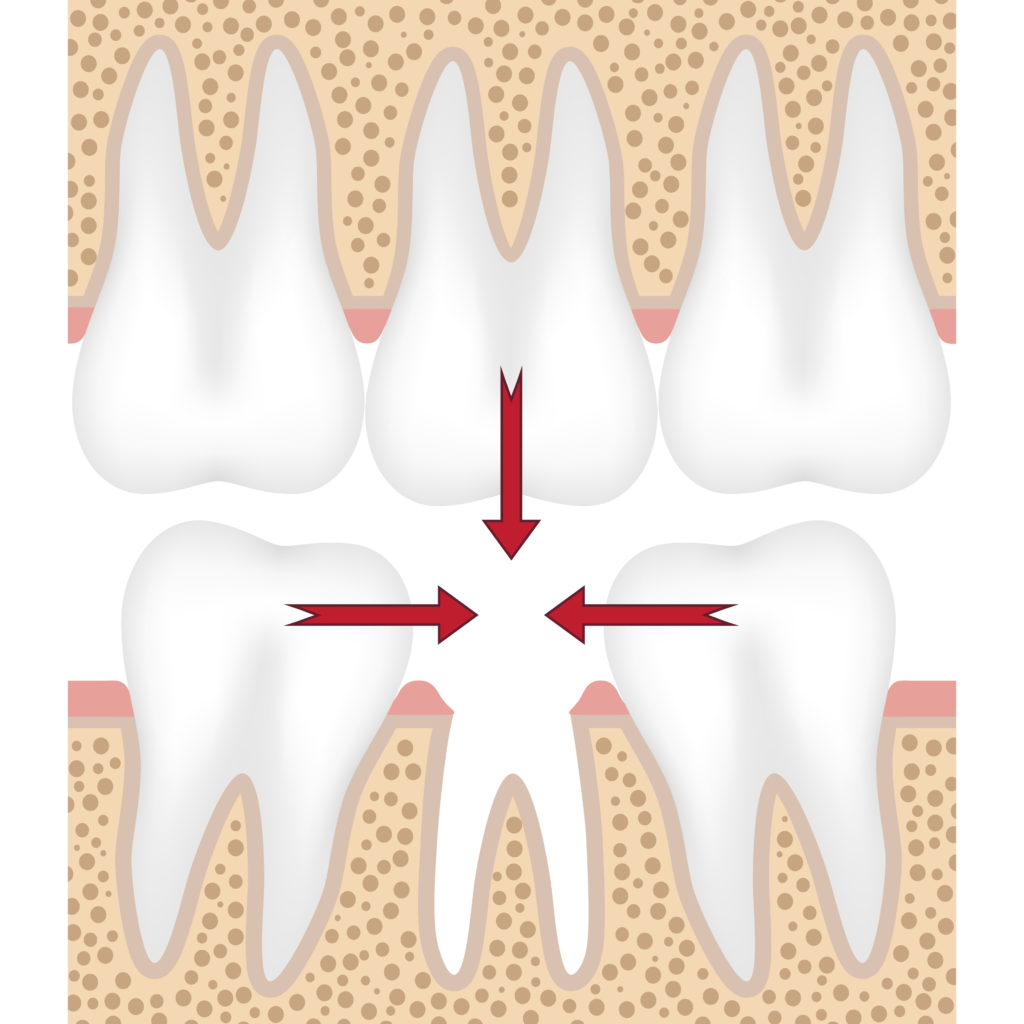We offer multiple dental implant treatment options. Whether you are missing a single tooth or all of your teeth, dental implants do more than just replace missing teeth, but can dramatically improve oral health, speech, nutrition, and self-esteem. Finally have the ability to eat what you want and the confidence to smile big.
Dental implants are made of biocompatible titanium or zirconia and are replacements for tooth roots. They act as the foundation for crowns, bridges, and dentures where a natural tooth is missing. After a dental implant is placed, your bone is allowed time to fuse to the implant before your beautiful new final restoration is placed. This time gives the implant the ability to be as strong, if not stronger, than your natural tooth.
Your doctor may suggest dental implants in order to replace one tooth or many teeth, depending on your dental needs. The first step in the dental implant process is the consultation. During the consultation you will receive appropriate imaging and have an exam with the doctor to find the best dental implant option for your individual needs.

Bridges, partials and dentures address the cosmetic problems of missing teeth and allow for functionality, but often lead to bone loss. Bridges replace a missing tooth, but require the grinding down of the healthy adjacent teeth, increasing the susceptibility of these teeth to decay. Bridges also do not prevent bone where the missing tooth once was from shrinking. Traditional dentures and partials become painful and loose over time as the bone shrinks and as the gums heal and change. This can cause difficulty eating and speaking.
With dental implants, adjacent healthy teeth are not compromised. Similar to natural teeth, dental implants stimulate the jaw and prevent the bone loss that is often seen with bridges and dentures. Unlike bridges and dentures that often need replacing or repairing, dental implants provide a natural-looking, permanent solution to missing teeth.

Missing teeth affect the ability to eat and speak properly. A missing tooth also can decrease self confidence and prevents many people from smiling or enjoying their time with others.
Missing teeth bring about changes in your diet and nutrition, by not being able to chew certain foods, like fresh vegetables and nuts, easily or without pain. This change in diet affects not just your mouth, but your overall health.
When a tooth is removed, the jawbone beneath it begins to slowly deteriorate and shrink. Bridges and dentures may give the look of having a full set of teeth but do not prevent the jawbone from shrinking.
Over time, the adjacent and opposing teeth of a missing tooth tip, shift, and lower into that space. This causes bite problems, discomfort, and compromises the area for future treatment.
Dental implants are the standard of care for replacing missing teeth. They fuse to your jawbone to provide a strong and permanent foundation for crowns, dentures, and other restorations.
Most healthy adults are candidates for dental implants. Adolescents can receive a consultation and will be eligible for implant placement once their jawbone has finished growing, usually age 18. Your dentist will review your health history and examine your oral health to to see if dental implants are right for you.
No, dental implants are placed under local anesthesia. IV sedation is also available.
You may return to work and normal activities the next day unless otherwise instructed.
Dental implant placement takes as little as 30 to 60 minutes.
If there is not sufficient bone to support a dental implant, a bone graft may be needed before or during the implant placement procedure. Your doctor with discuss bone graft options during your consultation.
Healing time varies by patient. Typically implants are healed and ready for final restorations in as little as three months. Your doctor will provide an estimated timeline based on your needs.
Just like your natural teeth, dental implants need to be kept clean. Continue with your regular dental cleaning appointments and practice good oral hygiene. Good home care consists of daily brushing, flossing, and using a water flosser.
If taken care of properly, dental implants are expected to last many years and are considered a permanent solution to missing teeth.
Dental implants do not decay and rarely need replacing, unlike other treatment options such as bridges which lead to decay, and dentures and partials that require relines and replacement of worn down teeth. Dental implants are a low maintenance and long lasting investment to your health and confidence.
All insurance plans are different but most have implant coverage. We will look into your insurance plan for you and discuss coverage and pricing at your consultation appointment.